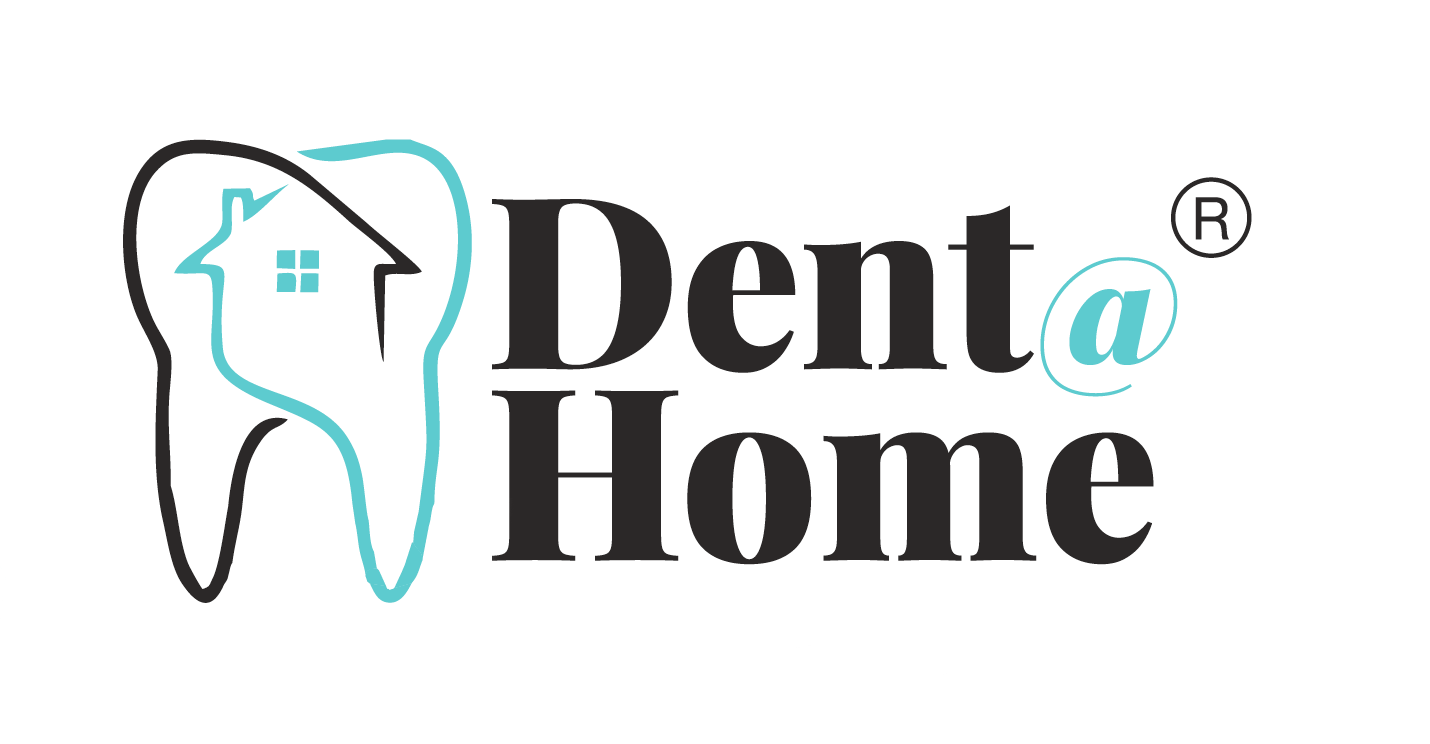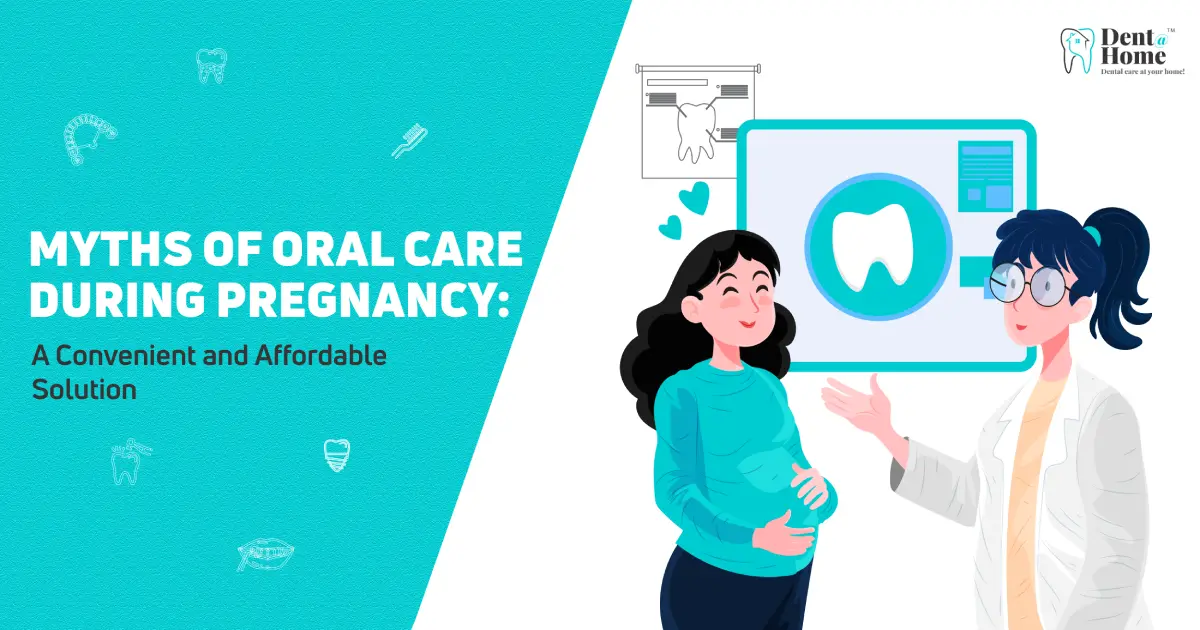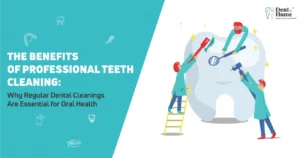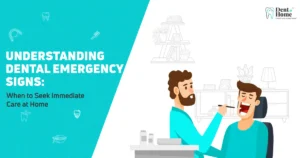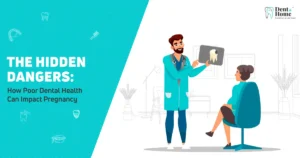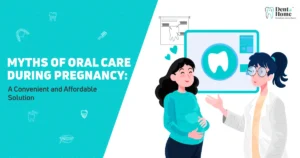It’s an old wise tale that ‘Pregnant women should not visit the dentist. However, this is more far from the truth. It is no secret that pregnancy affects the woman’s body, and so it affects their oral health, too.
Dental care shouldn’t take a backseat just because you are pregnant. In fact, it’s scientifically established that maintaining optimal oral hygiene is crucial during this special time.
Still skeptical? As expert dentists who’ve safely treated countless moms, we’re here to dispel common myths that initially even made our patients hesitate and present a science-backed reassurance.
Ready to challenge these beliefs? Keep reading this blog to separate dental facts from fiction.
Myth #1: Pregnant Women Should Avoid Dental Treatment.
Fact: Regular dental check-ups are safe and essential during pregnancy.
Some women may be hesitant to seekdental care during pregnancy due to fears of potential harm to the baby. However, avoiding dental checkups can do more damage to the baby than good.
- Hormonal fluctuations in pregnancy can lead to lower saliva production. This can directly affect the mouth’s natural defense against bacteria, increasing the damage to gums and teeth.
- Many tissues in the oral cavity undergo changes due to higher levels of hormones (estrogen and progesterone). This can lead to gingiva and, indirectly, tooth decay.
- Sweet cravings are common during pregnancy. When you consume sugary foods and beverages, the bacteria in the mouth feed on these sugars and produce acid as a byproduct. This acid, in turn, can lead to several adverse effects on teeth and gums.
As an expert dentist at home who offers a one-on-one experience to our patients, we recommend products and preventive measures to our moms-to-be for targeted protection of the oral cavity against uncontrollable sugar cravings.
- Effect on bad oral health on baby. Due to bad oral health in pregnancy, pregnant women can experience premature delivery or a low birth weight baby, both of which pose potential risks to a baby’s health (Ref: https://pubmed.ncbi.nlm.nih.gov/15642058/)
Myth #2: “Expecting mother put their fetus at risk by opting for Dental X-rays.”
Fact: Dental X-rays can be safely performed with proper precautions.
Dental X-rays usually have a low amount of radiation. Additionally, the use of lead aprons can minimize radiation exposure to the developing fetus. While X-rays should be avoided, if extremely necessary, they can be performed with due precautions, especially when timely diagnosis and treatment benefits far outweigh the potential risks.
Myth #3: “Pregnant Women Will Lose a Tooth for Every Pregnancy.”
Fact: Pregnancy itself does not cause tooth loss; Poor oral hygiene during pregnancy can lead to tooth loss.
In many Indian households, there’s a prevailing belief that babies eat up their mother’s calcium, potentially contributing to tooth loss during pregnancy. However, tooth loss is usually the result of poor oral hygiene, lack of regular dental care, and a diet high in sugary foods. Maintaining good oral hygiene practices, including regular brushing, flossing, and dental check-ups, can help prevent tooth decay and gum disease.
Myth #4: “Morning Sickness Leads to Irreversible Tooth Damage.”
Fact: While morning sickness can impact oral health, preventive measures can mitigate damage.
Morning sickness can expose teeth to strong stomach acids, potentially damaging the enamel (surface of the teeth) and increasing the risk of decay. However, this does not have to result in irreversible damage. You can rinse your mouth thoroughly first with water and later with fluoride mouthwash to neutralize acids and protect the teeth. We strongly advise waiting at least 30 minutes after vomiting before brushing to avoid causing further damage to softened enamel.
How many dental visits are recommended in pregnancy?
Pregnancy fills your calendar with many healthcare visits. This can tempt you to skip your dentist trip. However, at least two dental visits are recommended in the first trimester. Accordingly, all the planned treatments, such as tooth extraction and filling, should be scheduled within the second trimester.
Still, feeling anxious about visiting the dentist? It’s entirely normal for expectant mothers to feel a bit uneasy, especially considering factors like traveling to the clinic and the potential wait times. Here is where we step in. Dent@Home
To learn more about the benefits of innovative home dental care, read our blog: Dentures at Home.
Our highly trained dental professionals understand the specific needs of pregnant women. Our services go beyond traditional dental treatments—we bring comprehensive dental care directly to your home. Additionally, we prioritize personalized education, offering one-on-one sessions to inform and empower expectant mothers about optimal dental health care during pregnancy. Your well-being and comfort are our top priorities, and we strive to make your dental experience as convenient as possible.
Schedule your dental check-up today and embark on a journey to optimal oral health!
